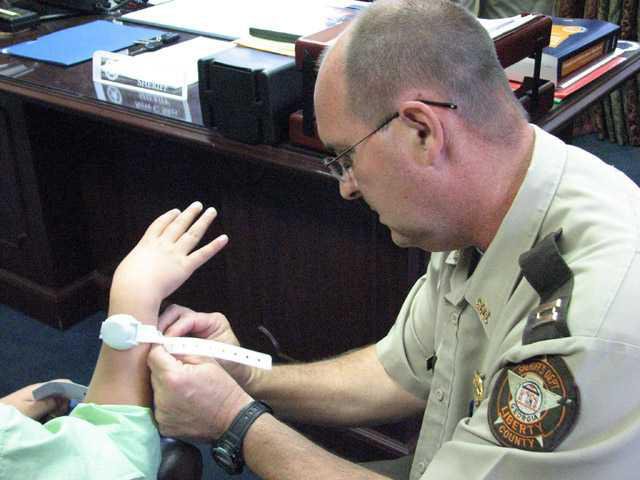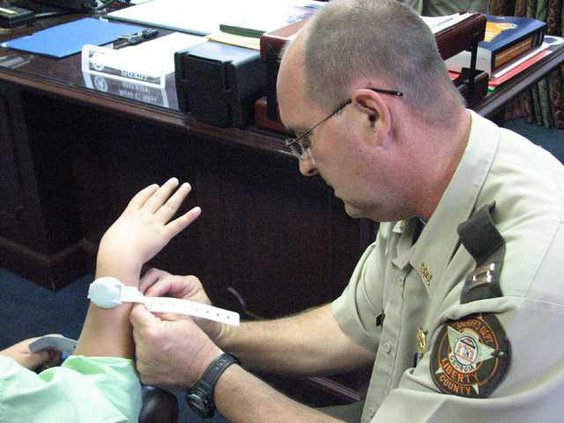Liberty County Sheriff Steve Sikes announced that he and his department recently certified six deputies, bringing the Project Lifesaver program to Liberty County.
Project Lifesaver is designed to track and rescue people with cognitive conditions who tend to wander, providing a critical service for the families of children and adults with traumatic head injuries, Alzheimer’s, autism, Down syndrome and dementia.
“One of the most prevalent problems we have with Alzheimer’s, autism and dementia is wandering,” Sgt. James Moore of the Chatham County Sheriff’s Department said. “What this provides is some peace of mind to the family, and that is something your sheriff and our sheriff are happy to provide because we have seen way too many deaths occur in our own communities.”
The Chatham County Sheriff’s Office provided the Liberty deputies with the recent certification training, which Liberty deputy Capt. David Edwards said was a combination of classroom training and hands-on skills on how to use the equipment, how to gain the trust of and communicate with people who wander, as well as to ensure that caregivers are well-versed in the program.
The training also certifies the local deputies to teach the course to other law-enforcement personnel and agencies.
According to Project Lifesaver International Inc., clients enrolled in the service wear a wristwatch-sized radio transmitter on their wrist or ankle. The transmitter constantly emits a radio frequency signal, which can be tracked regardless of where the person is located. When the client is reported missing, caregivers notify locally trained agencies, which are dispatched to the wanderer’s area. According to the hands-on training the LCSO conducted, the average rescue time is around 30 minutes.
Project Lifesaver is a nationwide program, and Edwards explained that each device has its own frequency and tracking number. If a family were to go out of town and the person wearing the device should wander off, they can notify the nearest participating agency and give it the device number so the person can be located.
“There are more than 1,500 agencies participating,” Moore said.
Among the local agencies participating are Liberty, Chatham, Bryan and Effingham counties, with more agencies looking to come on board as well, Edwards said.
Participating families are provided with a device that is used to check the battery on a daily basis. The deputies will conduct periodic check-ins with the clients for routine maintenance and will replace batteries as needed.
The sheriff said he stumbled across the information about Project Lifesaver one day while skimming through a magazine and immediately recognized how valuable the service would be to the community.
Cabelle Robles was at the sheriff’s office Wednesday morning to get her son fitted for a bracelet. Her son is 11 and suffers from epilepsy and autism.
“This will gives us some assurance in the event that he wanders off,” she said. “We’ve never had the problem of wandering before, but as he is getting older and he feels more independent, he is getting to where he will take off on his bike and go down the road. We pretty much know where he is at, but as far as calling his name, he won’t respond if he is focused on something else.”
Edwards said anyone interested in signing up with Project Lifesaver should call him directly at 408-3106.
Interested families are interviewed and paperwork detailing the person’s medical history and behaviors are documented. The device currently is not covered by insurance, but Edwards said they can set up a payment plan to cover the $300 initial cost of the device. After the first year, the family pays only $10 a month.
“For those families or caregivers who cannot afford the service, they are encouraged to check with their local agency for available options or call Project Lifesaver for grant opportunities,” Sikes said.
For more information, call Edwards at 408-3106 or Project Lifesaver at 1-877-580-5433 or go to www.projectlifesaver.org.
Project Lifesaver now available in Liberty Co.


Sign up for our e-newsletters